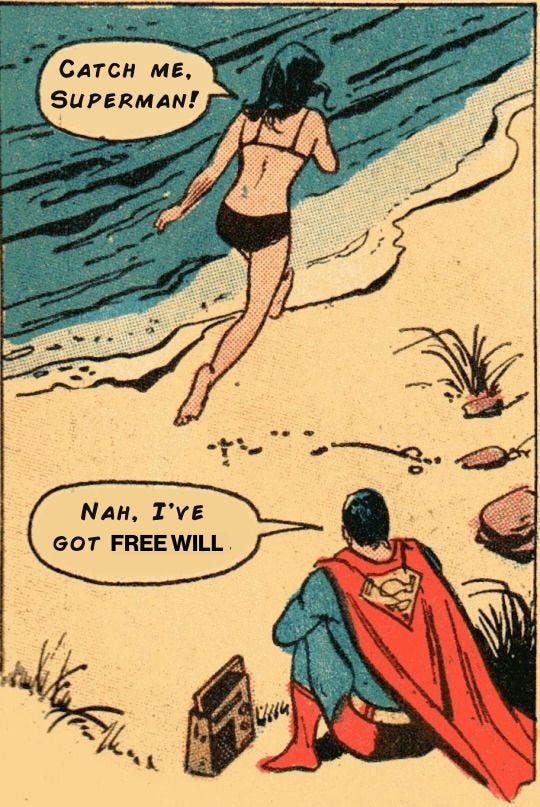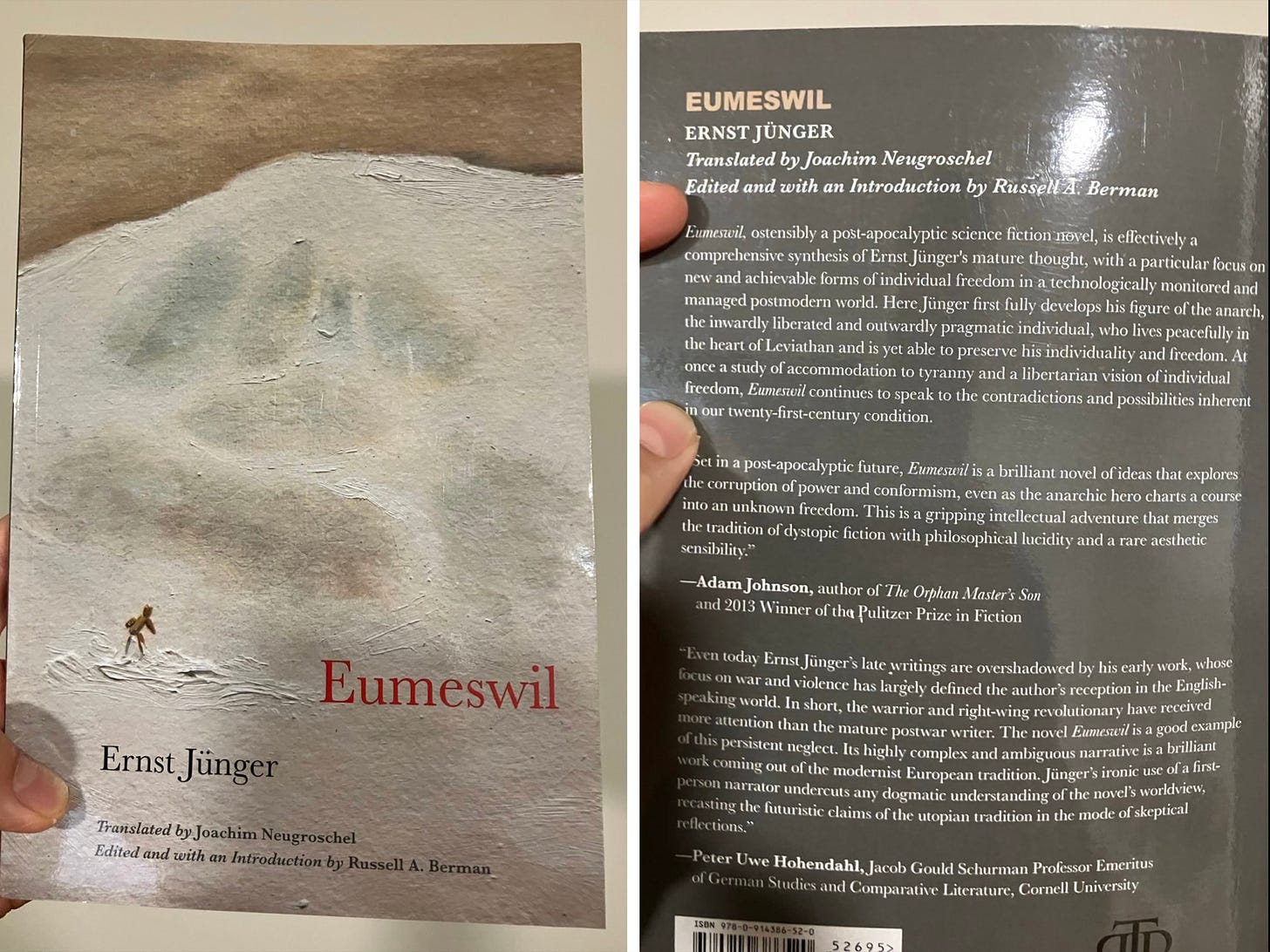I feel freeeeeeee.
It could be due to not going on podcasts, or maybe it's because of a longstanding effort to embody the following syllogism:
Premise 1: If the world is indetermined, free will exists.
Premise 2: If the world is determined, free will exists.
Conclusion: Therefore, free will exists regardless of whether the world is indetermined or determined.
How is this even possible? It might seem impossible, but it can make sense; you just have to stay with it for a while. It does not break the law of noncontradiction, despite what first glances might suggest. Besides, not breaking that law is overrated. Some people are too scared to break the laws of classical logic. Some people also do not really want to be free.
Many professional philosophers actually hold this position. It’s called “supercompatibilism,” the Superman of philosophical positions. According to philosopher Manuel Vargas:
Contemporary compatibilists usually embrace a kind of “supercompatibilism,” holding that freedom and responsibility are compatible with both indeterminism and determinism… After all, on supercompatibilist accounts the matter of indeterminism is supposed to be largely irrelevant for moral responsibility.
In an email exchange with Vargas, he mentioned that supercompatibilism is historically uncommon in the philosophical literature, but since the mid-20th century, it has become the default version of compatibilism—the view that free will and determinism are compatible. In fact, it's difficult to find contemporary compatibilists who aren't supercompatibilists.
All these neuroscientists telling us we are determined and have no free will is so boring. Good luck with that, guys. Enjoy whatever timeline that view leads to. Now, one can logically debate such claims and throw around more syllogisms, but those games are also boring. Such perennial issues of philosophy cannot be determined through reason and evidence alone. Freedom is a choice. Or said more accurately: freedom is choice. And for myself, like most important choices, it's an aesthetic one.
Aesthetic choices ripple into all areas of life, including one’s politics: the exercise of power. Pattern-matching the politics of this newsletter may be challenging, but longtime readers will recognize a culture war quietist stance and a focus on cultivating power literacy to demystify power dynamics. Without accurately spotting power dynamics within local social fields, one cannot freely exercise power on a wider scale.
Only one political label has ever resonated with me, related to the above position on freedom: Ernst Jünger’s notion of “the anarch.” Unlike the anarchist, who aims for external freedom from existing power structures, the anarch seeks inner freedom despite living within these structures. Both prioritize freedom, but the anarchist weds himself to existing powers by rebelling against them, unwittingly becoming enslaved by them. In contrast, the anarch, willing to play the fool, goes where true freedom is.
For the anarch, little is changed when he strips off a uniform that he wore partly as fool's motley, partly as camouflage. It covers his spiritual freedom, which he will objectivate during such transitions. This distinguishes him from the anarchist, who, objectively unfree, starts raging until he is thrust into a more rigorous straitjacket. - Ernst Jünger, Eumeswil
The anarch resonates with me because, for him, freedom is choice—one that can be exercised now, not earned in the distant future after collective emancipation. His freedom brings optionality: he can resist the powers that be, take up causes that resonate with his soul, and engage in political mimicry, all in ways that do not compromise the integrity that true freedom brings. An anarch’s political ambition is to maintain and encourage freedom by embodying it himself.
I long for a timeless summer full of hangouts with supercompatibilist anarchs. But such people are rare to find. Why are people increasingly freedom-shy, defaulting to the fashionable determinism of today? I recall a panel at The Stoa on “awakening” with four Buddhistics who claimed to be awakened. Someone in the audience asked them: Why pursue awakening? It was a good question because, outside of spontaneous awakening, it seems to take a lot of disciplined meditation to turn a non-ordinary state of consciousness into a permanent trait.
The response from one of the panelists was basically that you have to be called to it. I liked that. It felt honest. Not burdened by cultish moralizing. The same thing can be said about freedom: you have to be called to it. You are always free to decline the call. In fact, without the capacity to decline it, you cannot freely accept it. I remember a special day when I answered the call. Here is a description of the experience:
Time seemed to slow down until it stopped completely. I was weaving between feeling completely determined and completely free. A synthesis was nearby, one that could only be described as “beauty.” It was like watching myself in a movie, one that I was determined to star in but was freely co-writing. Everything was plain to see, but things were becoming brighter—a small taste of the divine. My mind was lost, but in the most beautiful way.
Of course, you’ll feel lost, but that is bound to happen when you’re accustomed to the comfortable illusion of being found. You can be free and lost at the same time. Being freely lost is better than being determinedly found.
I'd like to start a Supercompatibilist Anarch summer reading group with around 3-4 participants, ideally based in Toronto. We'll be reading Ernst Jünger's book Eumeswil, where the concept of the anarch was first introduced. If you are interested, reach out by emailing thestoa at protonmail dot com.





